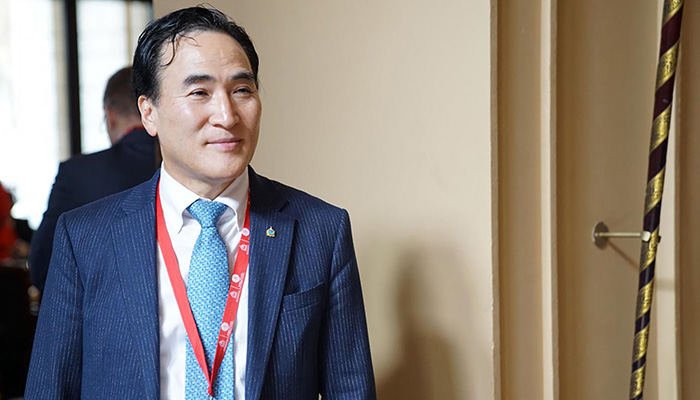Interpol picks S.Korea's Kim as president over Russian rival
November 21, 2018

DUBAI: Interpol announced Wednesday that Kim Jong-yang of South Korea had been chosen as its new president, beating a Russian official whose candidacy had unnerved Western nations.
The US-backed Kim, acting president of the global police body, was picked at a meeting of delegates from member nations in Dubai to replace Meng Hongwei, who went missing in his native China in September.
Beijing later said Meng resigned after being charged with accepting bribes.
There had been growing Western calls for Interpol to reject Russian candidate Alexander Prokopchuk -- a Russian interior ministry official and current Interpol vice president -- over fears Moscow could abuse the role to target political opponents.
On Tuesday, US Secretary of State Mike Pompeo threw his weight behind Kim, who will serve out Meng´s term until 2020.
"We encourage all nations and organisations that are part of Interpol and that respect the rule of law to choose a leader with integrity. We believe Mr Kim will be just that," Pompeo told reporters.
Critics have raised concerns over Russia´s previous applications for Interpol "Red Notices", or international arrest warrants, to target those who have fallen foul of the Kremlin.
Prokopchuk will continue in his role as Interpol vice president, a spokeswoman for the interior ministry in Moscow, Irina Volk, told Russian news agencies.
"As before, his work will focus on strengthening the positions of Interpol in the international police community and increasing the efficiency of the organisation´s work," Volk was quoted as saying.
Interpol's president chairs its General Assembly while day-to-day operations are handled by the organisation´s secretary general Juergen Stock.
In remarks posted on Interpol´s official Twitter account, Kim said after his election: "Our world is now facing unprecedented changes which present huge challenges to public security and safety.
"To overcome them, we need a clear vision: we need to build a bridge to the future."











